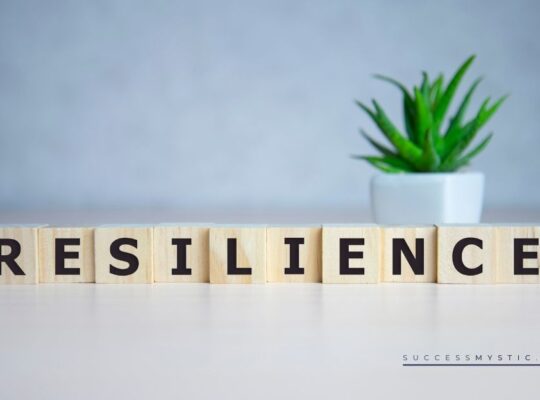Do you feel like you’re constantly comparing yourself to others, and feel inadequate as a result? Do you find that instead of feeling excited about where you are in life, all you can do is focus on what’s missing or what other people have that you don’t?
It’s easy to get caught up in the comparison game, especially when it seems like everyone around us is doing better than we are. But it’s important to remember that these are usually the highlights of their lives — not an honest reflection of their day-to-day struggles. When those feelings of inadequacy start creeping in, take time to appreciate the positive things in your life.
Make a list of things that make you happy and grateful for where you are in life. It could be anything from having a loving family, being able to travel often, or even just having a safe place to call home. Focusing on what we already have rather than what we don’t will help us appreciate our current situation more and stop feeling so inadequate.
When it comes to achieving our dreams, it’s easy to get overwhelmed by how far away they seem. We may think that if we don’t achieve them right away then we won’t ever get there – but this isn’t true! Instead of worrying about all the steps ahead, focus on taking small steps each day toward your goal.
Even though they may seem insignificant at first, each small step will add up over time and eventually lead to bigger accomplishments down the road! Concentrating on one step at a time can also help ease some of the pressure and anxiety associated with trying to achieve something “bigger than ourselves.”
When it comes to changing our perspective on life and feeling more fulfilled, reframing our thoughts can be incredibly helpful. Reframing essentially means shifting our perspective from negative thoughts into positive ones.
For example, if you find yourself thinking “I’m never going to get anywhere” try reframing it into “I’m working hard every day towards my goals”. This simple shift in mindset can help us stay focused on our goals without letting negative thoughts overwhelm us or make us feel inadequate.
Feeling inadequate is something that many of us struggle with – especially when we compare ourselves with others who appear to be further along in life than we are. However, by focusing on what we already have rather than what we don’t have; taking things one step at a time; and reframing our thoughts into more positive ones – we can start feeling more fulfilled with where we currently stand in life! In this blog post, we will further explore ways to feel more fulfilled with your current situation and stop feeling inadequate.
Understanding The Root Causes Of Feeling Inadequate
Understanding the root causes of feeling inadequate can be a difficult endeavor, but it is also an incredibly important one. Dealing with negative self-esteem can lead to mental health issues, an inability to reach life goals and overall dissatisfaction with life.
To effectively understand why someone feels inadequate requires insight into the individual’s background, personal history, and behaviors. This includes reflecting on past events and understanding how they shape current behavior.
Furthermore, recognizing any habits or patterns in thinking that may trigger feelings of inadequacy can help make a person more aware of their own behaviors and thought processes. Understanding the deep-rooted causes of feeling inadequate can pave the way for positive growth as individuals learn to recognize these emotions as they surface and work towards bettering themselves.
Common Root Causes Of Feeling Inadequate
Feeling inadequate can stem from a variety of root causes. One of the most common is comparison to others. Social media and other forms of media can make it easy to compare our lives to those of others and feel like we’re not measuring up.
Unrealistic expectations and standards for oneself can also contribute to feelings of inadequacy. When we set goals that are impossible to achieve, we inevitably fall short and feel like we’re not good enough.
A lack of self-awareness and understanding of one’s own strengths and weaknesses can also lead to feelings of inadequacy.
Negative past experiences or trauma can also have a profound impact on self-esteem, leading to feelings of inadequacy.
Societal or cultural messages that contribute to feelings of inadequacy, such as the idea that success is defined by certain markers, can also play a role.
Other causes include fear of failure, lack of control over one’s life, imposter syndrome, perfectionism, and lack of validation or support from others. It’s important to note that feeling inadequate is a complex issue and it can be rooted in a combination of these causes or others.
How Can You Work On Addressing These Root Causes To Feel More Confident In Yourself?
One of the most effective ways to work on addressing the root causes of feeling unconfident is to focus on self-care. Taking time to listen to our bodies and feelings can help us identify key areas of tension or pain that we want to address.
We can also work on improving lifestyle habits, such as developing healthier eating habits, participating in regular exercise, and getting enough restful, restorative sleep.
Additionally, we can practice self-compassion by regularly acknowledging our wins and successes, celebrating small victories, befriending our own inner critic if necessary, and connecting with others who encourage us to reach for more. All these components together help form a holistic approach to working on the root causes that keep us from feeling confident in ourselves.
Ways To Build Self-Confidence And Self-Esteem Over Time
Building self-confidence and self-esteem takes time and effort, but it is possible. Here are some ways to start building self-confidence and self-esteem over time:
- Set realistic and achievable goals: Setting goals that are challenging but still within reach can help you feel a sense of accomplishment and build self-confidence.
- Recognize and challenge negative self-talk: We all have negative thoughts from time to time, but it’s important to recognize and challenge them. Replace negative thoughts with positive affirmations or reframe them in a more positive light.
- Practice self-compassion: Be kind and understanding towards yourself. Treat yourself as you would treat a friend.
- Focus on your strengths and accomplishments: Reflect on your strengths and accomplishments and remind yourself of them often.
- Build a supportive community: Surround yourself with people who believe in you, who are supportive and who encourage you.
- Take care of yourself: Make sure you’re getting enough sleep, eating well, and engaging in activities that you enjoy.
- Learn to embrace failure: Failure is a natural part of life and a valuable learning experience. Learn to see failure as an opportunity to grow and improve.
- Prioritize self-care: Take time for yourself, engage in activities that you enjoy, and make sure you are taking care of your physical, emotional, and mental well-being.
- Find inspiration and role models: Look for people who inspire you and learn from them.
- Celebrate small wins: Celebrating small wins along the way can help you see progress and keep motivated.
- Seek professional help if needed: If you feel that you need more help to build self-confidence, consider seeking help from a therapist or counselor.
It’s important to remember that building self-confidence and self-esteem is a lifelong process, and it’s okay if it takes time. It’s important to be patient with yourself and to make sure you’re taking care of yourself.
How To Deal With Feelings Of Inadequacy When They Pop Up Unexpectedly
Unexpected feelings of inadequacy can be difficult to handle but it is important to remember that everybody experiences them. A helpful first step is making time for self-reflection. This can give you better insight into the situation and help you to identify the real cause of your feelings.
It also helps to talk through the issue with a trusted friend or family member; sharing our struggles with someone close can often help us find more perspective and understanding even in our most confusing moments.
Additionally, engaging in activities that naturally boost self-confidence, such as exercise or creating art, can help us recognize and appreciate our positive attributes while still acknowledging any areas where we would like to improve.
Recognizing And Challenging Negative Self-Talk
We’ve all experienced that negative self-talk in our heads. It can range from the subtle “you’re not good enough” to the outright cruel “you’re a failure.” No matter how it manifests, it can be destructive and debilitating if left unchecked. That’s why recognizing and challenging your negative self-talk is so important. Here are some tips on how to do just that.
Recognizing Your Negative Self-Talk
The first step in overcoming your negative self-talk is recognizing it when it happens. This often requires you to become aware of your thoughts and feelings in order to identify which ones are actually coming from you and which ones are coming from outside sources, such as other people or society at large. When you become aware of your thoughts, ask yourself questions like “Is this really true? Is this helpful? Does this serve me?” This will help you identify whether or not the thought or feeling is actually something you should listen to or ignore.
Challenging Your Negative Self-Talk
Once you have identified the negative self-talk for what it is, the next step is challenging it head-on. Instead of giving in to these negative thoughts, take a moment to recognize that they are only thoughts and feelings and not facts about who you are or what you can do.
Then try replacing them with constructive and positive affirmations about yourself. This could be as simple as saying “I am capable of achieving my goals” or “I am strong and resilient no matter what comes my way!” Doing this regularly will help rewire your brain to focus on more positive thoughts rather than negative ones.
Shifting Perspective
Another way to challenge your negative self-talk is by shifting your perspective on any given situation. Instead of focusing on what could go wrong, focus instead on the potential upside of taking action in spite of fear or uncertainty.
For example, instead of thinking “I won’t succeed so why bother trying?” Think instead “There’s always a chance I could succeed if I put in the effort!” Focusing on the possibilities rather than dwelling on the negatives can make a huge difference in how we view ourselves and our own capabilities.
Negative self-talk can be incredibly damaging if left unchecked but there are ways to recognize and challenge it effectively so that we don’t fall victim to its effects over time. By becoming aware of these negative thoughts when they arise, challenging them head-on with positive affirmations, and shifting our perspective when needed, we can learn to better recognize our own capabilities while learning how best to use them going forward. With practice, we can overcome even the most persistent forms of negativity within ourselves!
Setting Realistic And Achievable Goals
Feeling inadequate is something that many of us struggle with. Whether it’s not feeling like you measure up to others in terms of looks, income, or success, it can be difficult to put these feelings behind you.
One way to combat feelings of inadequacy is by setting realistic and achievable goals for yourself. Let’s explore why this works and how you can set the right kind of goals for yourself.
The Power Of Goal Setting
Goal setting is a powerful tool that helps channel your energy into positive action and gives you something tangible to work towards. It also helps boost your confidence when you complete a goal because it feels good when you achieve something you’ve been wanting for a while!
By setting realistic goals, you are able to break down big dreams into smaller tasks that are more manageable. This will help make the journey feel less overwhelming, as well as keep you focused on the task at hand, rather than getting distracted by other things in life.
Creating Goals That Work For You
When creating goals for yourself, make sure they are specific and measurable. This will help ensure that you stay focused on what needs to be done in order to reach them. Also, keep in mind that there is no one-size-fits-all approach when it comes to goal setting – everyone has different priorities and preferences so make sure your goals are tailored specifically to your own personal needs and wants.
For instance, if one of your goals is becoming more physically active then don’t just aim to go to the gym three times a week – create an exact plan outlining what type of exercise you want to do each day and how long each session should be for best results.
Finally, don’t forget about the importance of self-care when creating your goals! Make sure your list includes activities such as yoga or meditation that can help reduce stress levels and improve mental well-being, this will help fuel motivation levels while tackling bigger tasks throughout the day!
Setting realistic and achievable goals can be a great way to combat feelings of inadequacy by giving yourself something tangible to work towards. By breaking down big dreams into smaller tasks that are more manageable, as well as being mindful of self-care activities such as yoga or meditation – goal setting can become an effective tool in helping boost confidence levels while tackling bigger tasks throughout the day! We hope these tips have helped provide some clarity on how best to set realistic goals for yourself – good luck!
Cultivating Gratitude And Appreciation
If you are feeling inadequate, it may be time to try a different approach. One of the most powerful ways to battle inadequacy is by cultivating gratitude and appreciation.
Not only does this help us recognize the good in our lives, but it can also help us get out of a negative mindset and into a more positive space. Let’s take a look at how gratitude and appreciation can help with feelings of inadequacy.
The Power Of Positive Thinking
When we practice gratitude and appreciation, we shift our focus from negative thoughts to positive ones. Instead of dwelling on what we don’t have or what we feel like we aren’t good enough at doing, we start thinking about all that we do have and all that we are capable of doing. This shift in thinking helps us appreciate ourselves for who we are instead of constantly comparing ourselves to others.
This doesn’t just apply to how you view yourself—it also applies to how you view the world around you. When you start looking at your life from a place of abundance instead of scarcity, it becomes easier to see opportunities instead of obstacles in your path. You start recognizing the good in your relationships and experiences instead of fixating on the bad or focusing on what could be better.
Practicing Gratitude Daily
When it comes to cultivating gratitude and appreciation, consistency is key! It takes time and effort, but if you make an effort each day to practice gratitude then eventually it will become second nature.
Start by taking some time each morning or night before bed to write down at least five things that you are grateful for—whether they’re big things like having a loving family or small things like being able to take a hot shower every morning—writing them down will help them stick in your mind throughout the day as reminders of why life is worth living despite any hardships or struggles you may face.
You can also try incorporating small moments into your day where you pause and appreciate something around you—the beautiful weather outside, a kind word from someone close to you, etc.—this helps keep the feeling alive throughout your day so that even when times might be tough, there is still something positive grounding you amidst the difficulty.
Cultivating gratitude and appreciation can be incredibly powerful when battling feelings of inadequacy. When practiced consistently over time, these practices can truly transform our outlook on life from one rooted in scarcity and negativity into one centered around abundance and positivity!
As an added bonus, appreciating yourself for who you are will also boost your self-confidence which can open up many new doors that were previously closed off due to feelings of insecurity or inferiority!
Regardless of where life takes us, if we commit ourselves daily to appreciating everything around us then no matter how difficult things might get, there will always be something for us to find joy in!
Building A Supportive Community
Inadequacy is a feeling that can take hold of us, making us feel like we are not enough. This feeling can be difficult to shake and can lead to negative impacts on our mental health. To combat this feeling, it is important to create a safe and supportive community for everyone who is struggling with inadequacy. Let’s explore the importance of building such a community and how to go about doing so.
The Benefits of Building A Supportive Community
Creating a supportive community has many benefits when it comes to tackling feelings of inadequacy. It gives individuals a safe space where they can express their feelings without fear of judgment or criticism.
Additionally, it offers people the opportunity to connect with others who may be struggling with similar issues, providing comfort, and understanding in difficult times. It also helps build confidence as individuals learn from each other’s experiences and gain knowledge from different perspectives on how to manage their own mental health challenges.
Finally, building a supportive community helps to reduce isolation and encourages positive coping strategies that can help individuals thrive despite their struggles.
How To Build A Supportive Community
Building a supportive community starts by creating an open environment in which individuals feel comfortable expressing themselves without fear of judgment or criticism. This involves setting ground rules for constructive conversations and encouraging people to listen without offering advice unless asked for it directly.
Additionally, providing resources such as books, articles, videos, or websites related to topics being discussed can help facilitate meaningful conversations that are both informative and beneficial for all participants involved. Lastly, building a supportive community means taking the time to create meaningful connections through fostering relationships that offer empathy, understanding and support during difficult times.
Building a supportive community is essential when it comes to battling feelings of inadequacy. It provides individuals with an open environment where they can express themselves safely without fear of judgment or criticism while connecting with others who may be facing similar challenges.
Building such communities provide resources that help foster meaningful conversations while helping people build confidence in their ability to cope with their mental health challenges through empathy and understanding from those around them.
Ultimately, building a supportive community offers an invaluable network of support during difficult times that helps fight off feelings of inadequacy and promote positive outcomes for everyone involved.
Practicing Self-Compassion
Feeling inadequate can be a difficult emotion to overcome. We may feel like we are not good enough, or that we do not measure up to our peers. These feelings can be incredibly difficult to handle, but there is hope – practicing self-compassion can help us battle these feelings of inadequacy. Let’s look at what self-compassion is and how it can help us deal with the feeling of inadequacy.
What Is Self-Compassion?
Self-compassion is essentially treating yourself with kindness and understanding when you are going through a tough time or feeling inadequate in some way. It means recognizing your own struggles and allowing yourself to process negative emotions without judgment or criticism. This practice also involves understanding that everyone makes mistakes, but that those mistakes do not define who you are as a person.
The Benefits Of Practicing Self-Compassion
There are several benefits associated with practicing self-compassion, including increased emotional resilience, and improved mental health overall. One study found that individuals who practiced self-compassion were better able to cope with stress, anxiety, and depression than those who did not practice self-compassion.
Additionally, self-compassion has been linked to an increase in positive emotions such as joy, satisfaction, and contentment – all of which can help combat feelings of inadequacy.
How To Practice Self-Compassion
Practicing self-compassion isn’t always easy – it takes time and patience! That being said, there are some tips you can use when trying to practice self-compassion:
- Acknowledge your mistakes without judgment or criticism; recognize that they do not define who you are as a person.
- Speak kindly to yourself; speak words of encouragement instead of dwelling on negative thoughts or emotions.
- Take time for yourself; make sure you have time each day dedicated solely for relaxing activities that make you happy!
- Be mindful; pay attention to the present moment rather than ruminating on the past or worrying about the future.
- Reach out for support; don’t be afraid to ask for help from friends, family members, or even professionals if needed!
Practicing self-compassion is an important step in overcoming feelings of inadequacy. By acknowledging our mistakes without judgment or criticism and speaking kindly to ourselves, we can improve our emotional resilience while also increasing positive emotions such as joy and satisfaction.
Additionally, taking time for ourselves and reaching out for support when needed will help us stay focused on the present moment instead of ruminating on the past or worrying about the future too much. With patience and dedication, anyone can learn how to practice self-compassion in order to battle feelings of inadequacy!
Finding Inspiration And Role Models
It can be difficult to accept that you are inadequate in certain areas or lack the skills needed to succeed. But it’s important to understand that everyone has feelings of inadequacy at some point. You are not alone! One of the best ways to tackle these feelings is by finding inspiration and role models who have gone through similar experiences and come out on top. Let’s look closer at how you can use both inspiration and role models to battle your inadequacy.
Finding Inspiration
Inspiration comes in many forms, but one of its most powerful forms is stories. Stories allow us to identify with a situation or feel empathy for someone else’s circumstances, which helps break down our own walls of inadequacy. A good story can also provide perspective, allowing us to better understand our own struggles and how we might find a way out.
The key is knowing where to look for inspiring stories. There are numerous books, magazines, websites, videos, and podcasts available that share inspiring stories from people who have overcome their own challenges. These stories may provide a much-needed dose of hope when you’re feeling overwhelmed by your own sense of inadequacy.
Finding Role Models
Role models offer another great source of inspiration when you’re feeling inadequate about something in your life or career. Whether it’s a successful entrepreneur or an Olympic athlete, these people serve as examples of what hard work, dedication and perseverance can help achieve.
By studying the lives of those who have achieved greatness despite adversity, we can gain motivation to push ourselves further than we ever thought possible in order to reach our goals. Finding role models doesn’t always mean looking up to celebrities; they could be people around us who have gone through similar struggles as us but still managed to make something amazing out of their lives!
No one should ever let feelings of inadequacy stand in the way of achieving their dreams and goals; however, it’s normal for everyone to experience moments like this throughout their life journeys.
When moments like this arise, it’s important that we find sources such as inspiring stories and role models that help keep us motivated and remind us why we’re working so hard towards our goals in the first place!
By utilizing these methods, hopefully you will find the strength within yourself needed to fight any feelings of inadequacy and move forward on your journey toward success!
Embracing Failure And Learning From Mistakes
We all make mistakes and experience failure. It’s a part of life. But how you handle the situation is what truly matters. As daunting as it may seem, learning from failure can open the door to great success in the future. Here are some tips on how to embrace failure and use it as a learning experience.
Acknowledge Your Feelings About Failure
It’s important to recognize that it’s normal to feel negative emotions when faced with failure. Acknowledging this can help you move past them more quickly and effectively process the event instead of letting it linger in your head. Take a few moments for yourself and allow those feelings to be present without judgment before you move forward and take actionable steps toward problem-solving.
Analyze What Went Wrong
Now that you have allowed yourself time for processing, take an analytical look at what happened and why it went wrong. If you made an error or misjudgment, consider what could have been done differently or if there was something preventing you from making a better decision in the first place (for example, lack of information).
Doing this will help you identify any weaknesses or gaps in knowledge so they can be addressed going forward. It will also give you insight into any areas where improvement needs to be made so that you don’t repeat the same mistake twice—and if necessary, how those improvements should be implemented.
Find Ways To Move Forward
Once you understand what went wrong and where things could have been done differently, think about ways to apply new solutions or strategies moving forward so as not to repeat similar mistakes in the future. This is also a good time to ask for help from mentors or colleagues who can provide insight into potential solutions or alternative approaches that haven’t yet occurred to you. Having their input can not only provide clarity but also give much needed support during difficult times when facing failure feels overwhelming.
No one likes feeling inadequate because of mistakes or failures, but learning from these experiences can actually benefit us in the long run by teaching us valuable lessons about ourselves and our abilities that we may never have come across had we not experienced them firsthand.
Embracing failure as an opportunity for personal growth is key to turning setbacks into successes and allowing ourselves the freedom to grow without judgment or shame along the way. With these tips, we can all become better equipped at navigating through tough times while ultimately reaching our full potential!
Prioritizing Self-Care And Well-Being
The world we live in today is a demanding one. We’re expected to be working, studying, volunteering, and socializing all at the same time. It can be difficult to keep up with the pace of life and it can lead to feelings of inadequacy.
That’s why it’s so important to prioritize self-care and well-being. Taking care of yourself is not only beneficial for your physical and mental health, but it can also help you battle feelings of inadequacy. Let’s take a look at what self-care looks like and how it can help you fight those feelings of inadequacy.
What Does Self-Care Look Like
Self-care looks different for everyone, but there are some common activities that many people find beneficial when trying to reduce feelings of inadequacy. First, make sure you get enough sleep every night—at least seven or eight hours if possible.
Sleep deprivation can have serious negative effects on your mental health, including making you feel more overwhelmed and less likely to face life’s challenges head-on.
Next, make sure you take time out of your day just for yourself. This could include taking a long walk in nature or doing something creative like painting or writing poetry. It’s important to give yourself permission to do things that bring you joy without feeling guilty about it—you deserve it!
Finally, take the time to connect with friends and family members who will support you through difficult times and celebrate with you in good times. Connecting with others helps us remember that we are not alone in our struggles and gives us an opportunity to learn from each other’s experiences.
How Self-Care Can Help Fight Inadequacy
Self-care is essential for fighting feelings of inadequacy because it helps us focus on ourselves instead of comparing ourselves to others or feeling overwhelmed by outside expectations. Taking care of our bodies through exercise and healthy eating also helps us stay energized throughout the day so that we have the energy necessary to tackle any challenge that comes our way. Additionally, engaging in activities like yoga or meditation can help us recenter ourselves after busy days and remind us that we are capable and strong despite any difficulties we may face in life.
Self-care should always be a priority no matter how busy life gets; without proper care for ourselves, it can be easy for our mental health to suffer as well as our physical health. By taking the time out each day for self-care activities such as getting enough sleep, engaging in creative activities, connecting with loved ones, exercising regularly, eating healthy meals, meditating, or practicing yoga—we can better equip ourselves against feelings of inadequacy while also boosting our confidence levels overall! So don’t forget, self-care first!
Remembering That Life Is A Journey, Not A Destination
It’s easy to get caught up in the day-to-day and forget that life is a journey, not a destination. We are constantly bombarded with messages that tell us we need to be doing more, achieving more, and being more. It’s no wonder that so many of us feel like we’re not good enough.
The truth is, we are enough. Just as we are. But we often forget that and instead focus on what we’re lacking. We compare ourselves to others and come up short. We set our sights on an impossible standard and beat ourselves up when we don’t meet it.
It’s time to start remembering that life is a journey, not a destination. The beauty of a journey is that it’s always unfolding. There is always something new to discover. When we focus on the journey, we can let go of perfectionism and instead embrace curiosity and exploration.
One way to do this is to focus on your personal growth. Instead of fixating on where you want to be in 5 years, think about who you want to be. What qualities do you want to cultivate? What kind of person do you want to be? When you focus on becoming the best version of yourself, you’ll naturally start moving in the right direction—toward your goals and dreams.
Another way to shift your focus from the destination to the journey is to live in the present moment. One of the best ways to do this is through mindfulness meditation. When you meditate, you bring your attention to the present moment and let go of thoughts about the past or future. This can help you feel more connected to your life as it’s happening—and less stressed about what’s yet to come.
It’s important to remember that life is a journey, not a destination. When we focus on the journey, we can let go of perfectionism and instead embrace curiosity and exploration. One way to do this is to focus on your personal growth.
Another way to shift your focus from the destination to the journey is to live in the present moment. Through mindfulness meditation, you can bring your attention to the present moment and let go of thoughts about the past or future.
When you live in the present moment and focus on becoming the best version of yourself, you’ll naturally start moving in the right direction—toward your goals and dreams.







